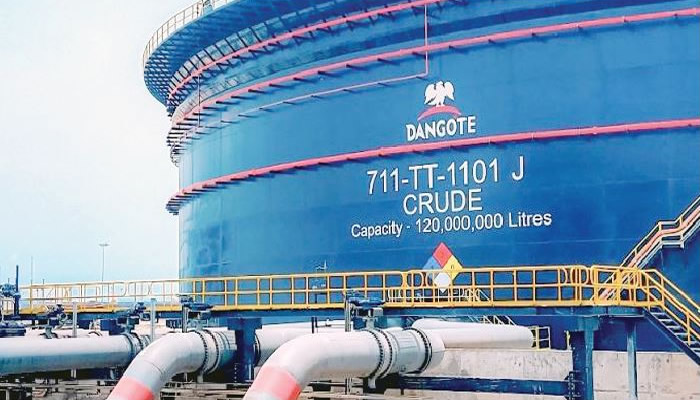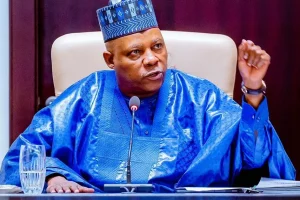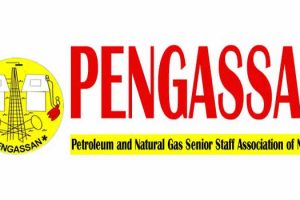Lagos, Nigeria – Nigeria’s Dangote Petroleum Refinery has announced it will commence nationwide distribution of petrol and diesel from August 15, a move that comes amidst escalating fears of fuel scarcity in Lagos and other parts of the country. The looming scarcity is triggered by a dispute between tanker drivers and the Lagos State Government over a new electronic traffic management system.
Fuel marketers and tanker drivers in Lagos State declared on Sunday that they would cease loading petroleum products from Monday, June 16, due to their refusal to pay a N12,500 ($8.30 USD) per-truck fee for the state’s new “E-Call Up” system, particularly along the vital Lekki-Epe Corridor.
In response, the Lagos State Government confirmed it would proceed with the E-Call Up system’s implementation on Monday, accusing the unions of extorting up to N41,000 ($27 USD) from drivers daily without providing any service in return.
Amidst this standoff, the Dangote Refinery issued a statement on Sunday, outlining its plan to deploy 4,000 new Compressed Natural Gas (CNG)-powered tankers to bolster delivery capacity and improve fuel access across Nigeria. The refinery stated its distribution offer would be available to marketers, petrol station dealers, manufacturers, telecom operators, aviation firms, and other large-scale fuel users. It also intends to establish daughter booster CNG stations and a dedicated fleet of over 100 gas-powered tankers to support distribution.
The company stated that this logistical support, including free product delivery, is designed to eliminate distribution bottlenecks and reduce operational costs across key economic sectors. “This strategic programme is part of our broader commitment to eliminating logistics costs, enhancing energy efficiency, promoting sustainability, and supporting Nigeria’s economic development,” the statement read.
This initiative follows previous remarks by Dangote Group President, Aliko Dangote, hinting at a significant “shakedown” in the country’s fuel distribution sector. The plan, which includes a credit scheme for bulk buyers of 500,000 litres and above, is anticipated to revitalise dormant filling stations, ease inflationary pressure, stimulate small businesses, and support President Bola Tinubu’s ongoing economic reform agenda.
However, Dangote’s move to directly distribute fuel could potentially impact projected revenues for the truck parks built under Lagos State’s E-Call Up system.
Looming Scarcity Concerns
Marketers have expressed fears that the tanker drivers’ decision to halt fuel loading could trigger widespread scarcity if the dispute is not amicably resolved.
Lagos Deputy Governor Obafemi Hamzat recently explained that the E-Call Up system is designed to regulate the movement of articulated vehicles and tankers on the Lekki-Epe corridor. The aim is to promote orderly traffic flow and prevent the severe gridlock previously experienced in the Apapa area of Lagos.
The Lekki-Epe axis, home to major investments including the Dangote Refinery, Lekki Deep Sea Port, and numerous oil and gas installations, has seen a significant surge in industrial and commercial activities, intensifying congestion concerns on its single major exit route. The Commissioner for Transportation, Mr. Oluwaseun Osiyemi, stated the system requires truck operators to register online and upload “Authority to Load” documents, with only validated trucks gaining access to designated parks to await electronic call-up notifications for loading.
However, the National Association of Road Transport Owners (NARTO) and the Independent Petroleum Marketers Association of Nigeria (IPMAN) argue that the N12,500 fee is excessive, proposing N2,500 per truck instead.
NARTO President Yusuf Othman told local media on Sunday that negotiations were ongoing with the Lagos State Government. “It is not that our members don’t want to load from the Dangote refinery; there is a plan by the Lagos State Government to start the E-Call Up system on Monday, which will attract N12,500 per truck,” he said. “We told our members not to ply the road; they should hold on until we have an amicable resolution.”
IPMAN Vice President Hammed Fashola echoed this, stating marketers are not against the E-Call Up system itself, but the cost and the perceived haste of implementation without full stakeholder consultation. He also raised concerns about the condition of the designated truck parks, alleging that stakeholders were not properly consulted or shown suitable facilities.
Government’s Stance
In response, Olawale Musa, the Permanent Secretary at the Lagos State Ministry of Transportation, accused the tanker driver unions of being “mischievous.” He clarified that the N12,500 fee is for the use of privately built facilities designed to manage traffic and improve environmental conditions, not for the government’s coffers. Musa alleged that the unions themselves collect significant sums, averaging N41,000 per truck daily, without providing services.
He stressed the importance of obeying regulations to prevent the Lekki-Epe road from mirroring the past chaos of the Apapa port access road. Musa dismissed the unions’ proposed N2,500 fee as insufficient for investors to recoup their costs, asserting that the unions were attempting to be “lawless” by threatening strikes over a system designed for order and efficiency.





Add Comment